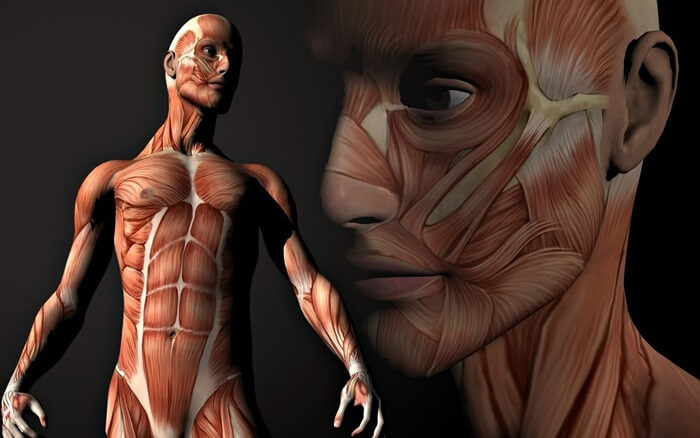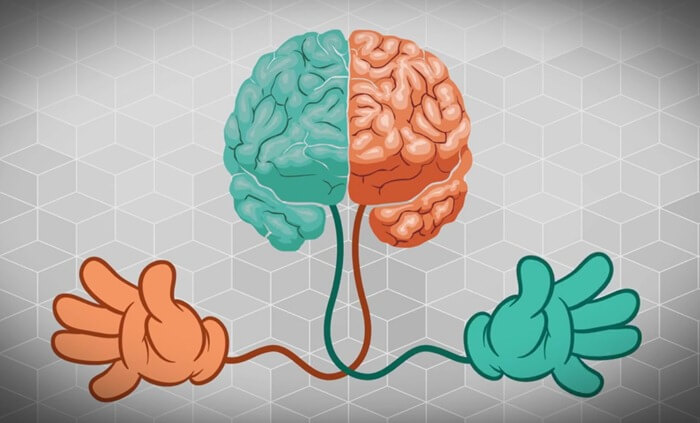Sometimes it seems that scientists (especially British) know everything in the world. They have suitable explanations for cosmic wormholes, dark matter, and other globally important issues. However, some mysteries, for all their seeming simplicity, are so complex that they cannot be solved in any way.
We present to the attention of our readers the top 7 very simple questions to which scientists have no answer.
7. How does a lightning strike occur?
 It is a known fact: a cloud forms after the air containing water vapor rises and cools, which will lead to the formation of cloud elements - water droplets and / or ice crystals. And powerful cumulonimbus clouds can turn into thunderstorms. They can also store up to one hundred million volts of electricity, and bring them down to the ground in the form of lightning. But a rather important step is missing between these events. How do these clouds form a deadly electrical lightning bolt? Based on what we know about electricity, this is not possible. The electric field in a thunderstorm is about 10 times smaller than the field that can create lightning.
It is a known fact: a cloud forms after the air containing water vapor rises and cools, which will lead to the formation of cloud elements - water droplets and / or ice crystals. And powerful cumulonimbus clouds can turn into thunderstorms. They can also store up to one hundred million volts of electricity, and bring them down to the ground in the form of lightning. But a rather important step is missing between these events. How do these clouds form a deadly electrical lightning bolt? Based on what we know about electricity, this is not possible. The electric field in a thunderstorm is about 10 times smaller than the field that can create lightning.
But what happens in space, if such lightning trillion!
Of course, scientists have prepared suitable theories for this case. Some people think that an electrical charge occurs when ice particles collide with each other. Some people think that the sun's rays are involved in this process. And there are also supporters of the idea that lightning can be thrown down by the god Thor, who tests his hammer.
6. Why do we sleep?
 In the sixth place in the rating of the most curious unanswered questions is the sleep that all representatives of the species Homo sapiens need. Scientists estimate that a person who has reached 78 years of age spent an average of 25 years on sleep.
In the sixth place in the rating of the most curious unanswered questions is the sleep that all representatives of the species Homo sapiens need. Scientists estimate that a person who has reached 78 years of age spent an average of 25 years on sleep.
Anyone who has ever been awake all night knows how tired and nervous sweat you feel. And if you do not sleep for several days in a row, then you can even die. But since the human brain is still very little researched, the need for sleep is still a mystery, shrouded in darkness.
Scientists know that sleep does something good for the brain, but what exactly is still a mystery.
5. How many muscles are there in the human body?
 It is generally accepted that a physically complete average person has about 700 skeletal muscles in his body, but their actual number varies from 640 to 850. Some muscles in our body are very complex, and they may well be not one, but two different muscles. And some people have extra muscles in their bodies. So the answer to this question is “a lot”. Or, if you want to answer scientifically - "about 700".
It is generally accepted that a physically complete average person has about 700 skeletal muscles in his body, but their actual number varies from 640 to 850. Some muscles in our body are very complex, and they may well be not one, but two different muscles. And some people have extra muscles in their bodies. So the answer to this question is “a lot”. Or, if you want to answer scientifically - "about 700".
4. Why does placebo work?
 When people think they are taking a medicine and not a dummy, they feel better. This is another amazing example of how the human mind is bizarrely arranged. At the same time, the strength of the effect on the body depends on the color of the placebo.
When people think they are taking a medicine and not a dummy, they feel better. This is another amazing example of how the human mind is bizarrely arranged. At the same time, the strength of the effect on the body depends on the color of the placebo.
- The placebo effect of red pills is most pronounced, then, in decreasing order: blue, green, yellow and white. These are the conclusions of a study involving patients with rheumatoid arthritis.In this case, the effect of multi-colored real tablets was the same.
- A placebo from a medic in a white coat works better than a placebo from a non-physician.
- In some cases, placebo was comparable to morphine in pain relief.
Even people who know they are not taking the real medicine have a positive effect on the placebo. During the experiment, doctors told patients that they received tablets with regular sugar inside, but there was a huge difference in the speed of recovery of patients taking placebo and normal patients. But doctors have no answer to the question of why we can trick the brain with the help of false pills.
3. How does anesthesia work on a person?
 Anesthesia helps to put the patient into deep sleep, or to numb a specific part of the body. However, it is impossible to truly understand how anesthesia plunges people into unconsciousness until it becomes clear what consciousness is.
Anesthesia helps to put the patient into deep sleep, or to numb a specific part of the body. However, it is impossible to truly understand how anesthesia plunges people into unconsciousness until it becomes clear what consciousness is.
Perhaps during anesthesia, synchronicity is disturbed between different areas of the cerebral cortex. It is possible that anesthesia causes quantum oscillations in neural microtubules. But all this is nothing more than theory.
2. Why are people left-handed and right-handed?
 About 10% of people are left-handed. And it is surprising that at birth, people already prefer either the left or the right hand.
About 10% of people are left-handed. And it is surprising that at birth, people already prefer either the left or the right hand.
Scientists have no idea why the human race does not use both hands equally. Perhaps there is a connection with speech skills. They (like motor skills) are the most energy-intensive activities for the brain. Neurologists have noticed that the brain seems to work with them in the same areas. In this case, the left hemisphere of the brain controls the right side of the human body, and the right hemisphere, respectively, the left. For most people, the left hemisphere is "responsible" for speech, it is the most developed, so the right hand is dominant.
However, in most left-handers, language processes also occur in the left hemisphere, and in this they do not differ from right-handers. Then why do they mainly use the left hand?
Interestingly, gorillas and chimpanzees are also usually right-handed. It turns out that at some stage of evolution, people began to prefer to act either with their right or left hand. It remains only to find out at what point, and for what purpose.
1. Why do we yawn?
 In the first place in the collection of questions that have not yet been answered is the puzzle of yawning.
In the first place in the collection of questions that have not yet been answered is the puzzle of yawning.
Hippocrates tried to answer the question about the necessity of this phenomenon. In his opinion, through yawning, a person gets rid of "bad air" and breathes in "good air".
Scientists later hypothesized that the act of yawning decreases the amount of carbon dioxide in the body and increases the level of oxygen in the blood. This is comparable to the Hippocratic conjecture, but sounds more scientific.
However, this theory does not explain why yawning is a common companion to feeling tired. If you think logically, then this is how we can increase the level of oxygen in the brain, but yawning does not significantly affect this parameter.
And why don't you want to yawn when your body really needs oxygen? After all, usually people are not "attacked" by yawning while playing sports.
There are no answers yet for many seemingly simple things that exist in the world. Maybe this is good, because scientists always have something to strive for and sooner or later they will unravel the amazing secrets that Nature has given to mankind.

